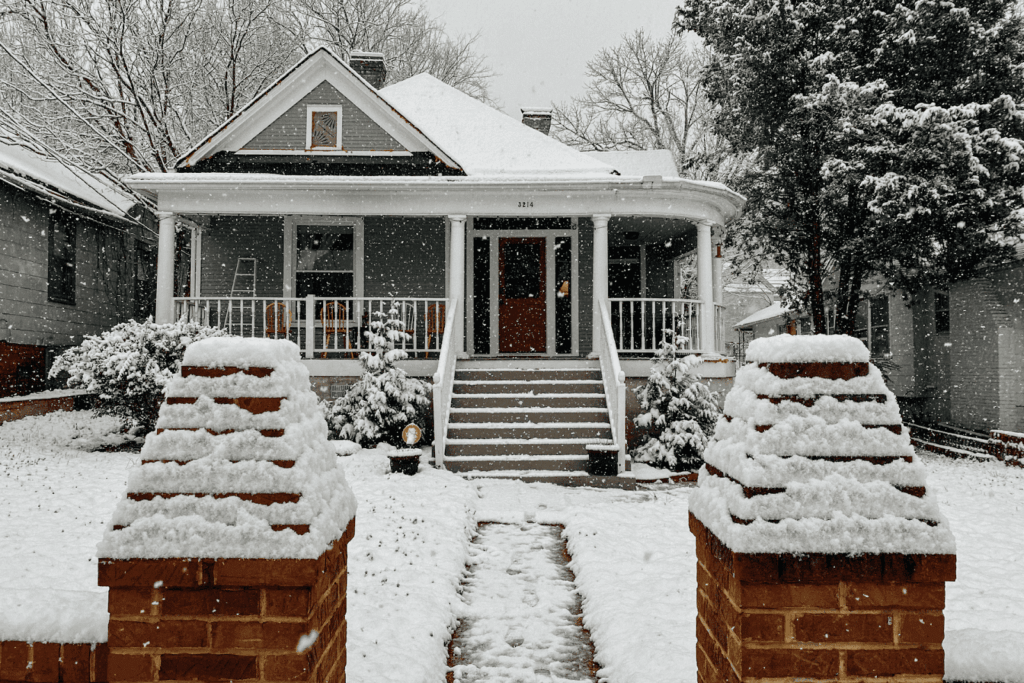Leaving your home empty during the chilly Arkansas winter can lead to costly problems if you don’t properly prepare it. Whether you’re relocating, dealing with an inherited property, or just planning a long absence, winterizing your home before a vacancy is a smart move. Protecting your property from cold-weather damage saves you headaches and money down the road.
Why Winterizing Matters for Vacant Homes in Arkansas
Arkansas winters might not be the harshest in the country, but cold snaps and freezing temperatures still pose risks to unoccupied homes. Pipes can freeze and burst, heating systems might fail, and moisture can cause mold or structural damage. Without anyone around to catch these issues early, repairs can become expensive fast.
Vacant homes also face other challenges, such as security risks and pest infestations, but winterizing focuses on weather-related protection. Taking the proper steps before you leave gives you peace of mind and keeps your property in good shape for when you return or sell.
In addition to protecting plumbing and heating systems, winterizing involves ensuring that the home is adequately insulated. This can include sealing windows and doors to prevent drafts, adding insulation to attics, and even using weather stripping to keep the cold air out. These measures not only help maintain a stable temperature inside the home but can also contribute to energy efficiency, reducing costs when the home is occupied again. Moreover, a well-insulated home is less likely to experience condensation issues, which can lead to mold growth and further damage over time.
Another important aspect of winterizing is addressing the exterior of the property. Clearing gutters and downspouts of debris ensures that melting snow and ice drain properly, reducing the risk of water pooling and damaging the foundation. Additionally, trimming back trees and shrubs can prevent branches from breaking and falling onto the house during winter storms. By taking these proactive steps, homeowners can significantly reduce the likelihood of costly repairs and maintain the overall integrity of their property during the colder months.

Essential Steps to Winterize Your Home
1. Protect Your Plumbing
Frozen pipes are the top concern for vacant homes during winter. When water inside pipes freezes, it expands and can cause pipes to crack or burst. Here’s what to do:
- Shut off the main water supply to the house to stop water flow.
- Drain all water from pipes by opening faucets and flushing toilets.
- Add antifreeze designed for plumbing systems in traps and toilets to prevent freezing.
- Keep the thermostat set to at least 55 degrees to maintain warmth inside.
These steps reduce the risk of costly water damage and keep your plumbing intact.
2. Secure Heating and Insulation
Even if you’re not living there, maintaining some heat inside the home is important. Set your thermostat to a safe minimum temperature to avoid freezing issues. If you have a programmable thermostat, use it to manage energy efficiently while still protecting the home.
Check insulation in attics, basements, and crawl spaces to prevent heat loss. Seal any drafts around windows and doors with weather stripping or caulk. This keeps the interior temperature stable and reduces heating costs.
3. Prevent Moisture and Mold
Moisture buildup during winter can lead to mold growth and damage to walls, ceilings, and floors. To keep moisture under control:
- Ensure gutters and downspouts are clear to prevent water pooling near the foundation.
- Use a dehumidifier if possible, or leave interior doors open for air circulation.
- Fix any leaks before you leave, especially around windows, roofs, and plumbing.
Taking these steps helps maintain a dry, healthy environment inside your home.
4. Secure the Property
Vacant homes can attract unwanted attention. Lock all doors and windows securely, and consider installing timers on indoor lights to make the house look occupied. If you have an alarm system, make sure it’s activated and functioning properly.
Trim back any overgrown bushes or trees near entry points to reduce hiding spots for intruders. A well-maintained exterior sends a message that the home is cared for, even when empty.
Additional Tips for Arkansas Homeowners Facing Vacancy
Handle Lawn and Exterior Maintenance
Before you leave, mow the lawn and trim shrubs. Overgrown yards are a clear sign that a home is vacant. If you’ll be gone for several months, arrange for regular lawn care. Also, clear leaves and debris from walkways and driveways to prevent slip hazards and maintain curb appeal.
Shut Off Non-Essential Utilities
Turn off water to appliances like washing machines and dishwashers to avoid leaks. Unplug electronics and appliances to prevent fire risks and save energy. If you have a gas supply, check if it’s safe to turn off during your absence.
Document Your Home’s Condition
Take photos or videos of your home before leaving. This documentation can be useful for insurance claims if any damage occurs while you’re away. Also, inform a trusted neighbor or friend about your vacancy so they can keep an eye on the property.
When Selling a Vacant Home in Arkansas
If you’re planning to sell your home but need to move quickly or avoid the hassle of traditional listings, consider working with a local property buyer. Arkansas Property Buyers offers a straightforward solution for homeowners who want to sell fast, especially if the property is vacant or needs repairs.
They buy homes in any condition, often with cash offers and no commissions or fees. Their process is simple: submit your property info, receive a no-obligation offer within 24 hours, and close on your schedule. This can be a great option if you want to avoid ongoing maintenance or winterizing costs for a vacant home.

FAQs About Winterizing Vacant Homes in Arkansas
How low should I set my thermostat when winterizing a vacant home?
Set your thermostat to at least 55 degrees to prevent pipes from freezing and keep the interior warm enough to avoid damage.
Can I turn off the water completely when leaving my home for the winter?
Yes, shutting off the main water supply and draining pipes is recommended to avoid frozen and burst pipes during cold weather.
What if my home has problematic tenants or needs repairs before winter?
If managing the property is too stressful, selling to a local cash buyer like Arkansas Property Buyers can be a hassle-free option. They buy homes as-is, so you don’t have to worry about repairs or tenant issues.
How quickly can I sell my vacant home to Arkansas Property Buyers?
They typically provide an offer within 24 hours and can close in as little as 3 days, giving you flexibility and speed when you need it most.
Is there a fee for selling my home to Arkansas Property Buyers?
No, there are no commissions or hidden fees for sellers. Arkansas Property Buyers often covers closing costs, making the process transparent and straightforward.
Winterizing your vacant home in Arkansas doesn’t have to be complicated. With the right preparation, you can protect your property and avoid costly damage. And if selling is on your mind, consider the fast, fair options available through trusted local buyers like Arkansas Property Buyers.
Ready to Sell Your Vacant Home in Arkansas?
If winterizing your vacant property feels overwhelming, Arkansas Property Buyers is here to offer a simpler solution. We provide homeowners in Little Rock and the surrounding areas with a fast, stress-free way to sell their homes for cash. No need to worry about repairs, foreclosure, or unwanted rental properties. Our process is transparent, with no commissions or fees, and you’ll receive a fair cash offer within 24 hours. Get Your Fair Cash Offer today and move on with ease.
